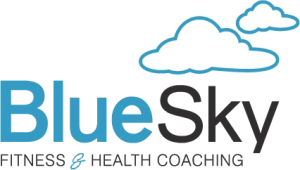Photo by Matthew T Rader on Unsplash
Collagen has become a buzzword in the wellness world, particularly when it comes to beauty, skin health, and stopping the signs of aging in their tracks.
Collagen can now be found in everything from beauty and skin products to food products, like bone broth and powdered hydrolyzed collagen supplements.
You may have noticed your favorite wellness influencers adding powdered collagen to everything from morning lattes and green smoothies to baked goods.
What’s all the collagen hype even about?
When it comes to aging, collagen is credited with helping to slow the visible signs of aging skin, like wrinkles, fine lines, dryness, and loss of firmness. Extra dietary collagen may also help hair and nails grow faster and stronger.
Collagen is also thought to decrease joint pain and stiffness, help promote healthy digestion, and can help heal and restore compromised gut lining associated with digestive disorders like leaky gut syndrome and inflammatory bowel disease (IBD).
What Is collagen?
Collagen is one of the most abundant proteins found throughout your body. It plays a major role in providing structure and support to skin, bones, ligaments, tendons, muscles, and other tissues.
Collagen is in a cycle of breakdown and renewal. Things like sun exposure, smoking, pollution, poor diet, and stress can accelerate the breakdown of collagen and make it harder for your body to replace it.
Your body makes collagen from amino acids – the building blocks of all proteins. The predominant amino acids found in collagen are glycine, proline, and hydroxyproline.
The production of collagen naturally slows down with age. Some studies find increasing intake of collagen results in improvements in the visible signs of aging, like less wrinkles and increased elasticity and hydration.
Where do I get collagen from?
Collagen is also found in the bones and connective tissues of animals. Food sources include the skin and bones from chicken, pork, beef, and fish – parts of animals that aren’t plentiful in today’s modern diets.
Bone broth and gelatin are rich in collagen and made from the bones of animals. You can find it readily available in many different forms in most grocery stores.
But, can I benefit from a collagen supplement – and will it really help with skin health?
The best and easiest way to increase your intake of collagen is with a supplement. Most supplements available today are hydrolyzed, meaning the collagen has been broken down into smaller fragments that are easier for your body to digest and absorb.
Hydrolyzed collagen peptide supplements dissolve into cold or hot liquid and can be easily be added to a variety of beverages and recipes to boost collagen content.
In contrast, gelatin supplements gel when heated and are best suited for recipes that require thickening, like soups, puddings, and sauces.
Collagen supplements are typically sourced from bovine (i.e. cattle skin) or marine (i.e. fish scales) sources, but both function essentially the same in the body. There may be subtle differences in taste and smell depending on the source, so choose one that fits your tastes, diet, and lifestyle.
It’s believed dietary collagen helps provide extra building blocks (those amino acids) that are needed to promote collagen synthesis in the body. However, other research suggests the body doesn’t distinguish between collagen and other protein sources, meaning the collagen you consume doesn’t necessarily end up directly deposited into your skin.
It’s important to remember decreased collagen production is only one piece of the puzzle in the development of aging skin. While increasing your intake of collagen may help ward off wrinkles, your overall skin health and beauty also depend on:
- Avoiding smoking and excessive alcohol consumption
- Proper hydration
- Sun protection
- Getting enough sleep
- Eating a nutrient dense diet
- Managing stress
However, there are no known side effects to using hydrolyzed collagen supplements, and in general, increasing your collagen intake can be a safe element in your anti-aging routine.
Our delicious and creamy Collagen Cocoa hot drink recipeis just one way you could easily incorporate this promising supplement into your day.
RECIPE
Collagen Cocoa
Ingredients
2 cups dairy-free milk
2 Tbsp raw cacao powder
2 scoops hydrolyzed collagen powder
2 tsp natural sweetener, such as honey or maple syrup (or more to taste)
⅛ tsp sea salt (optional but really adds to the taste!)
Instructions
Heat non-dairy milk in a small saucepan over medium-high heat. Careful not to scald the milk!
Stir in cacao & collagen powders, sweetener and salt until dissolved.
Pour cocoa mixture into 2 mugs and enjoy immediately.
REFERENCES



